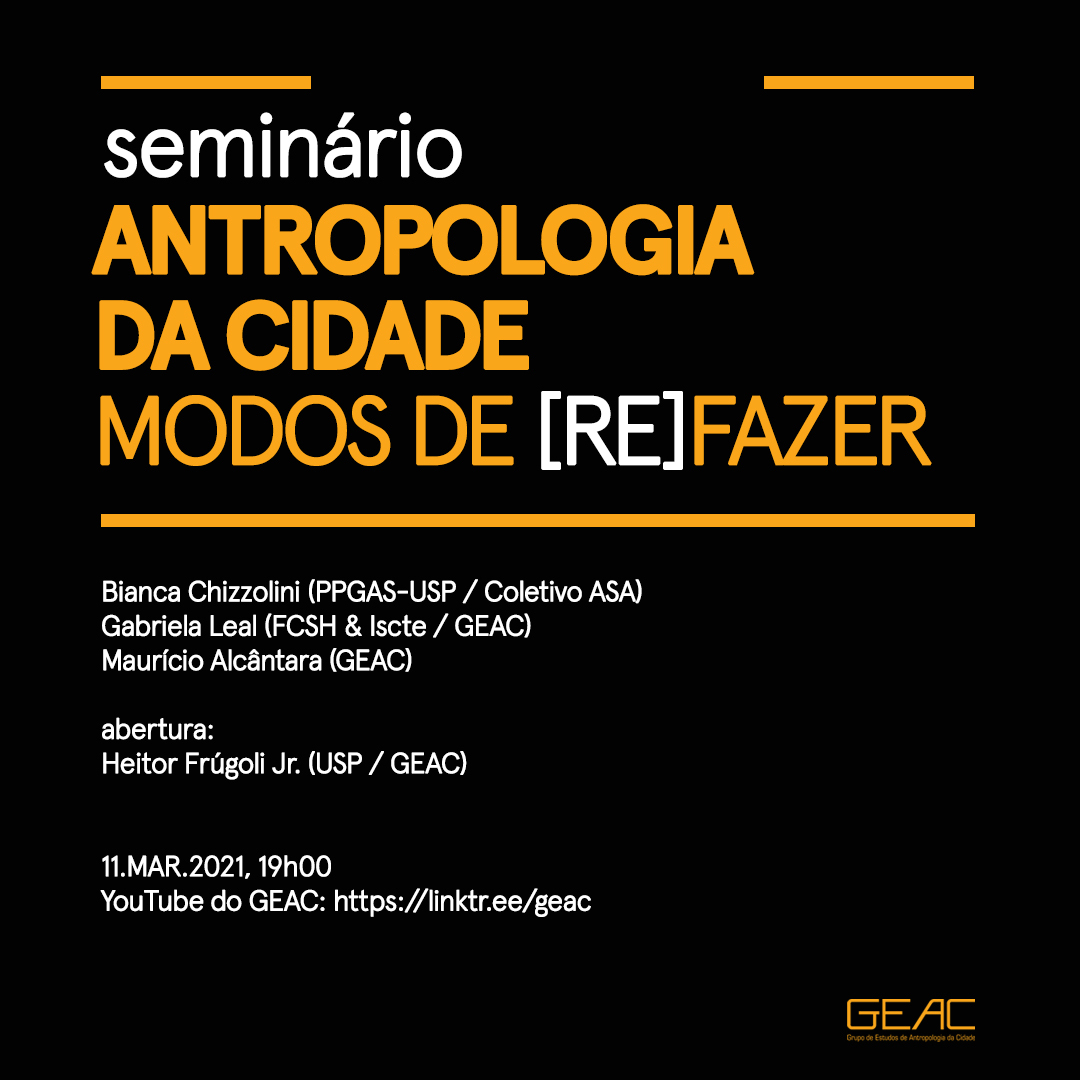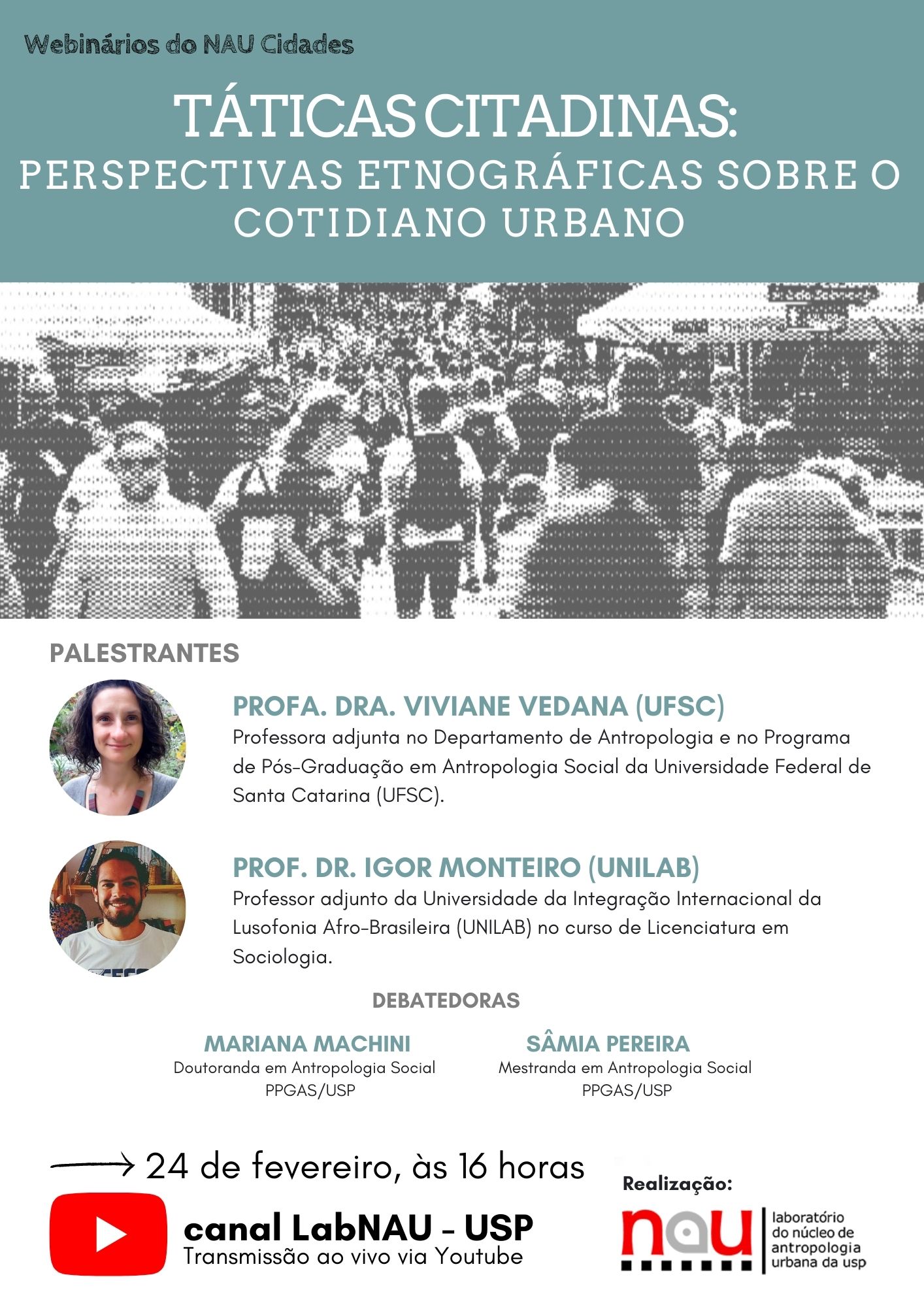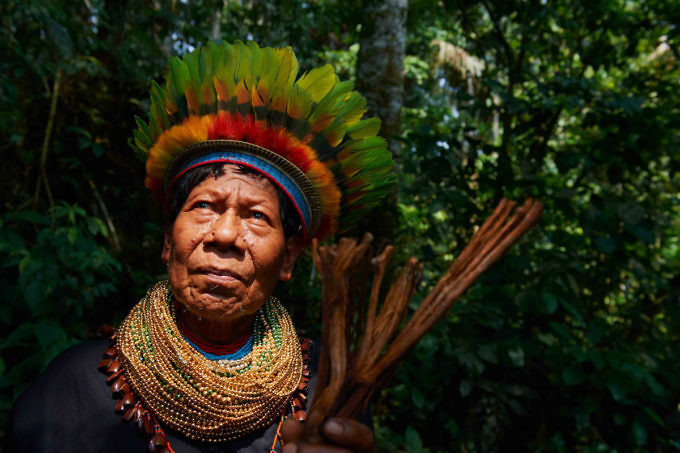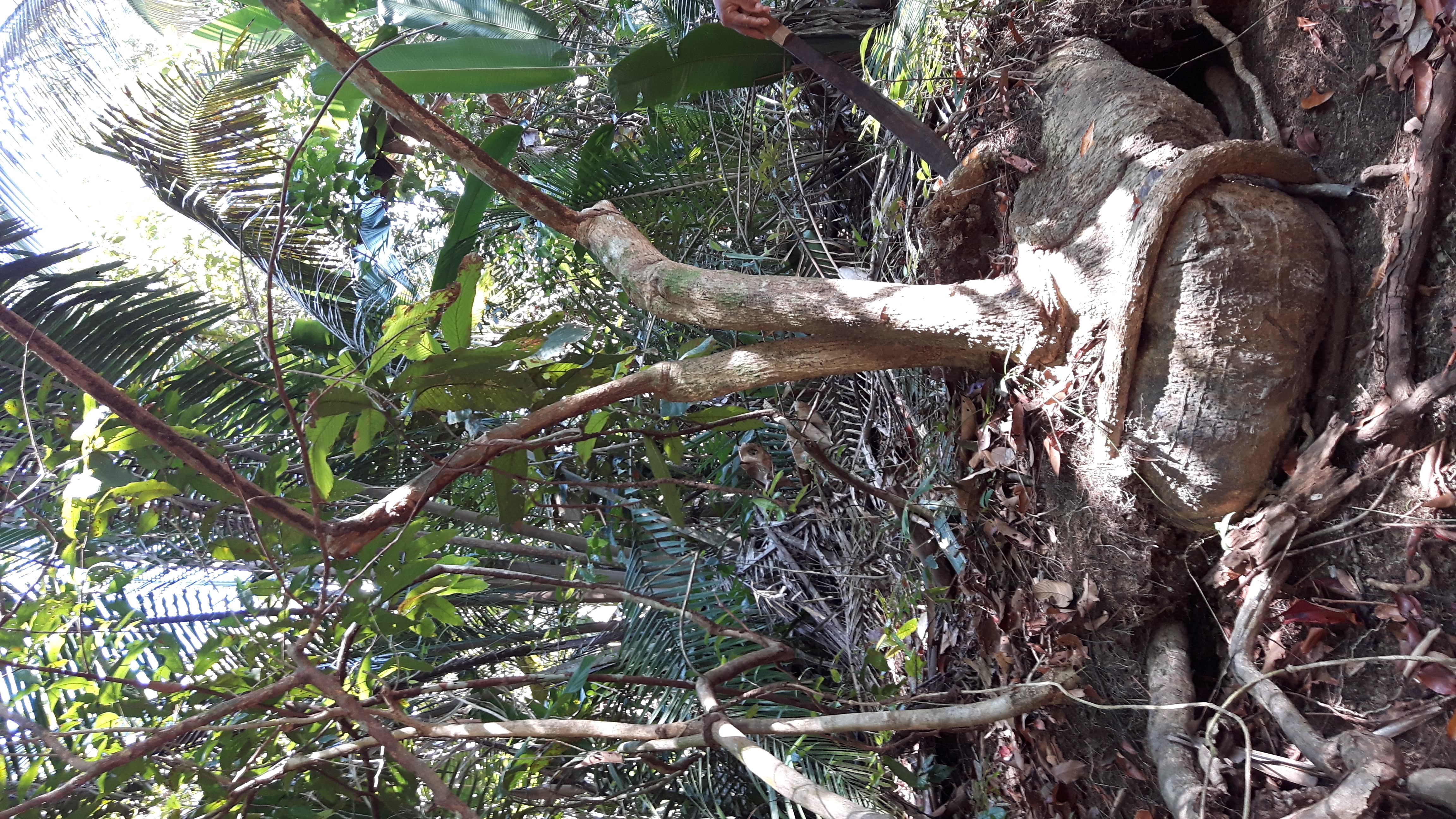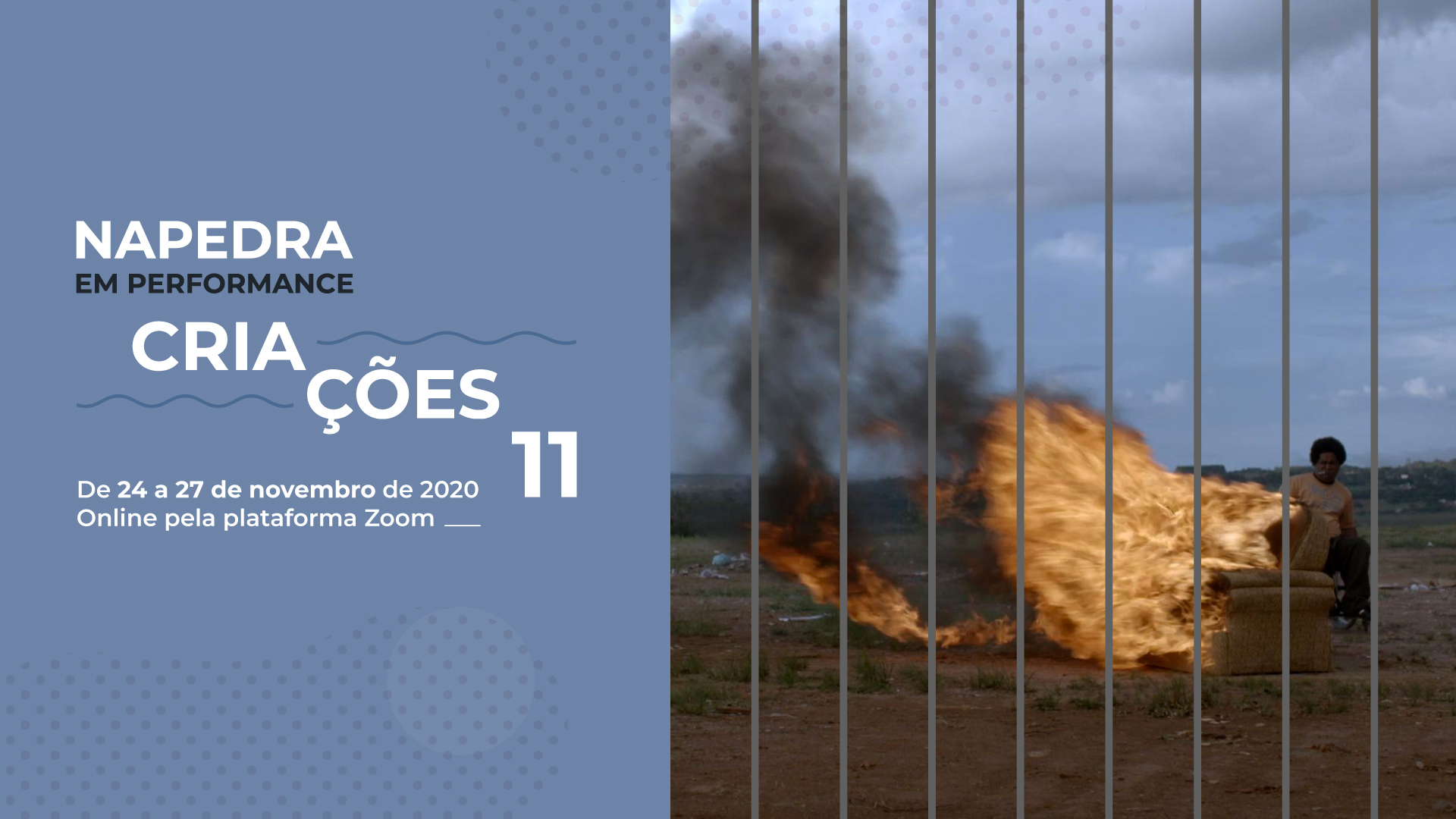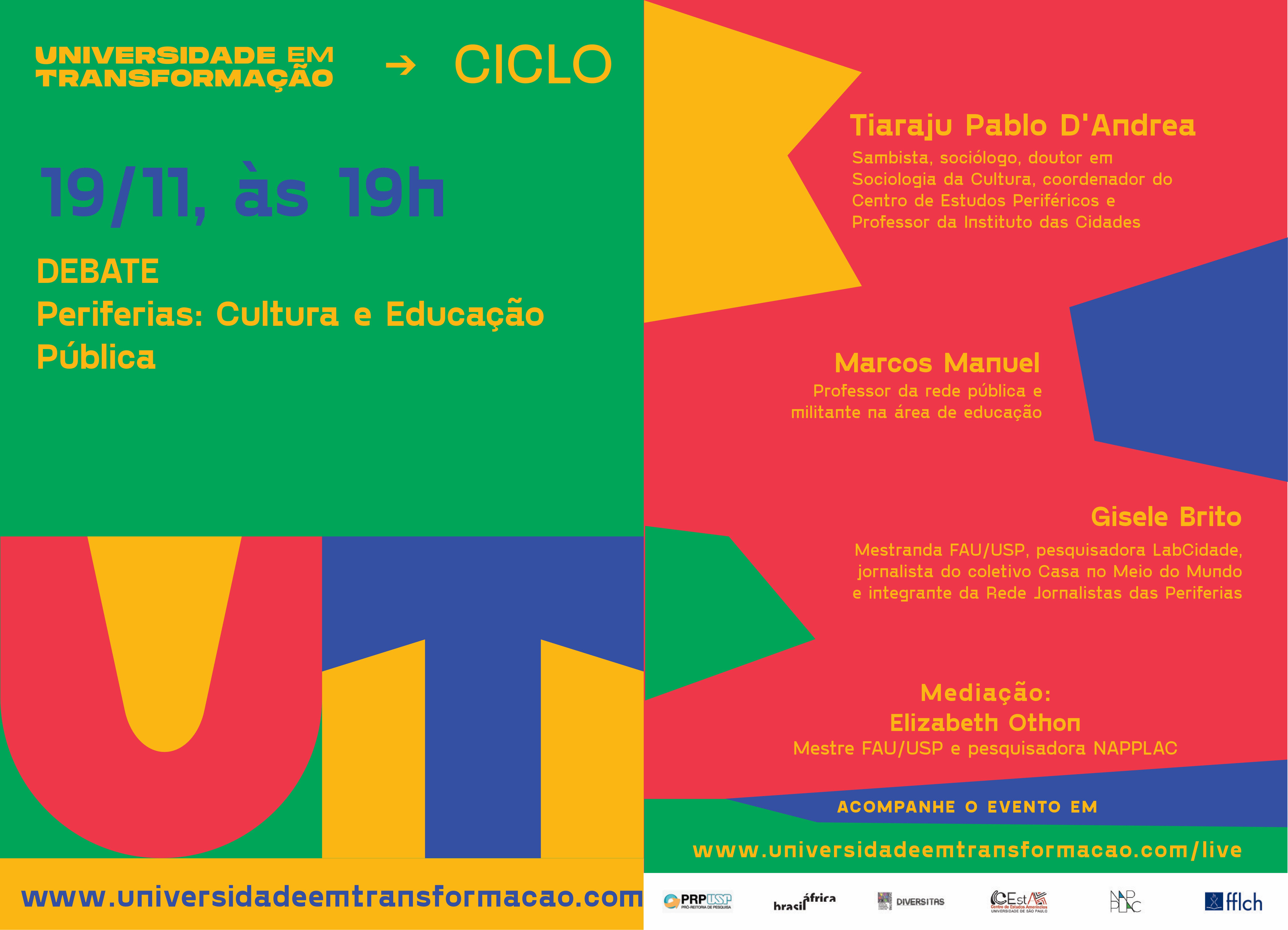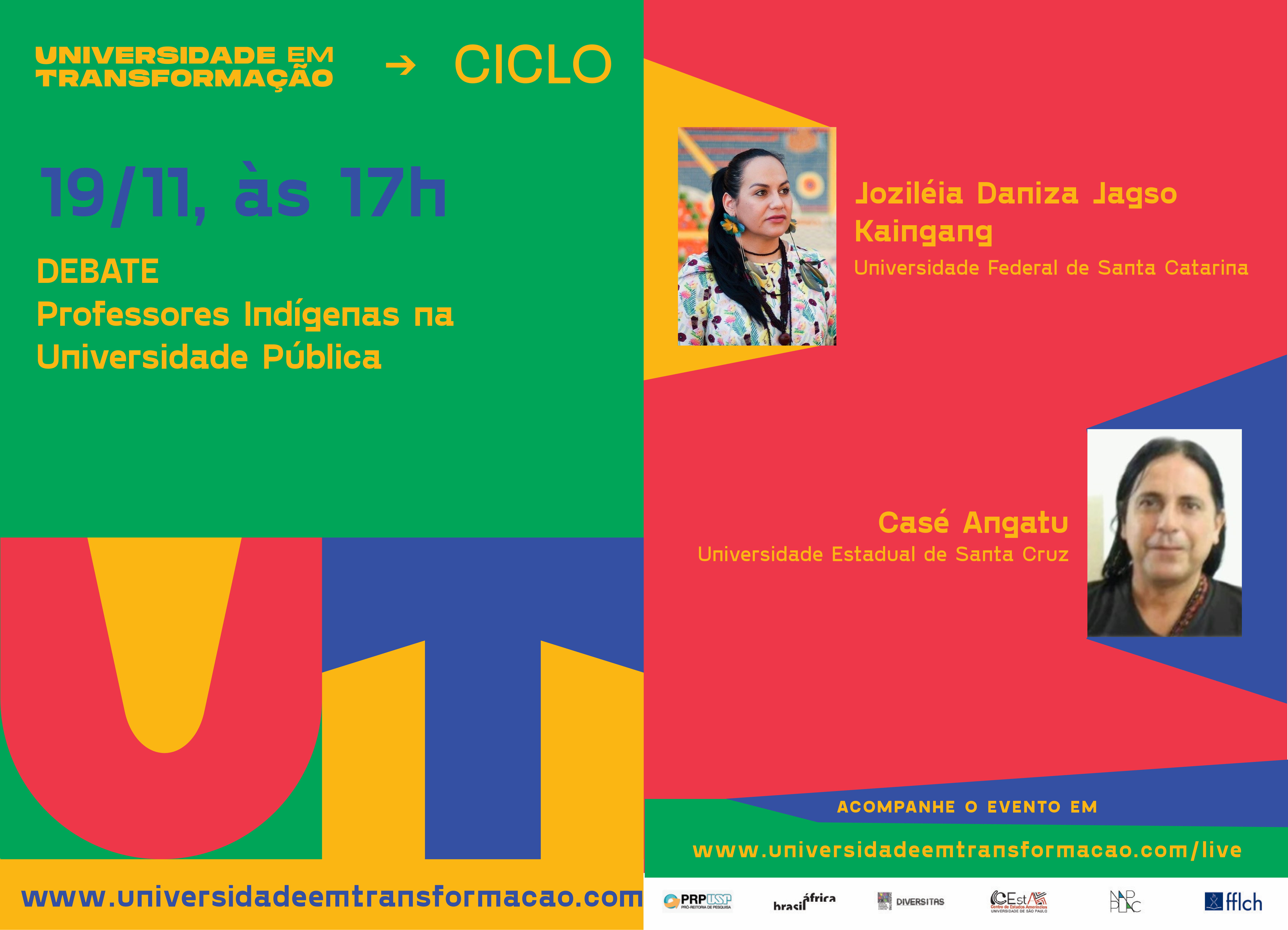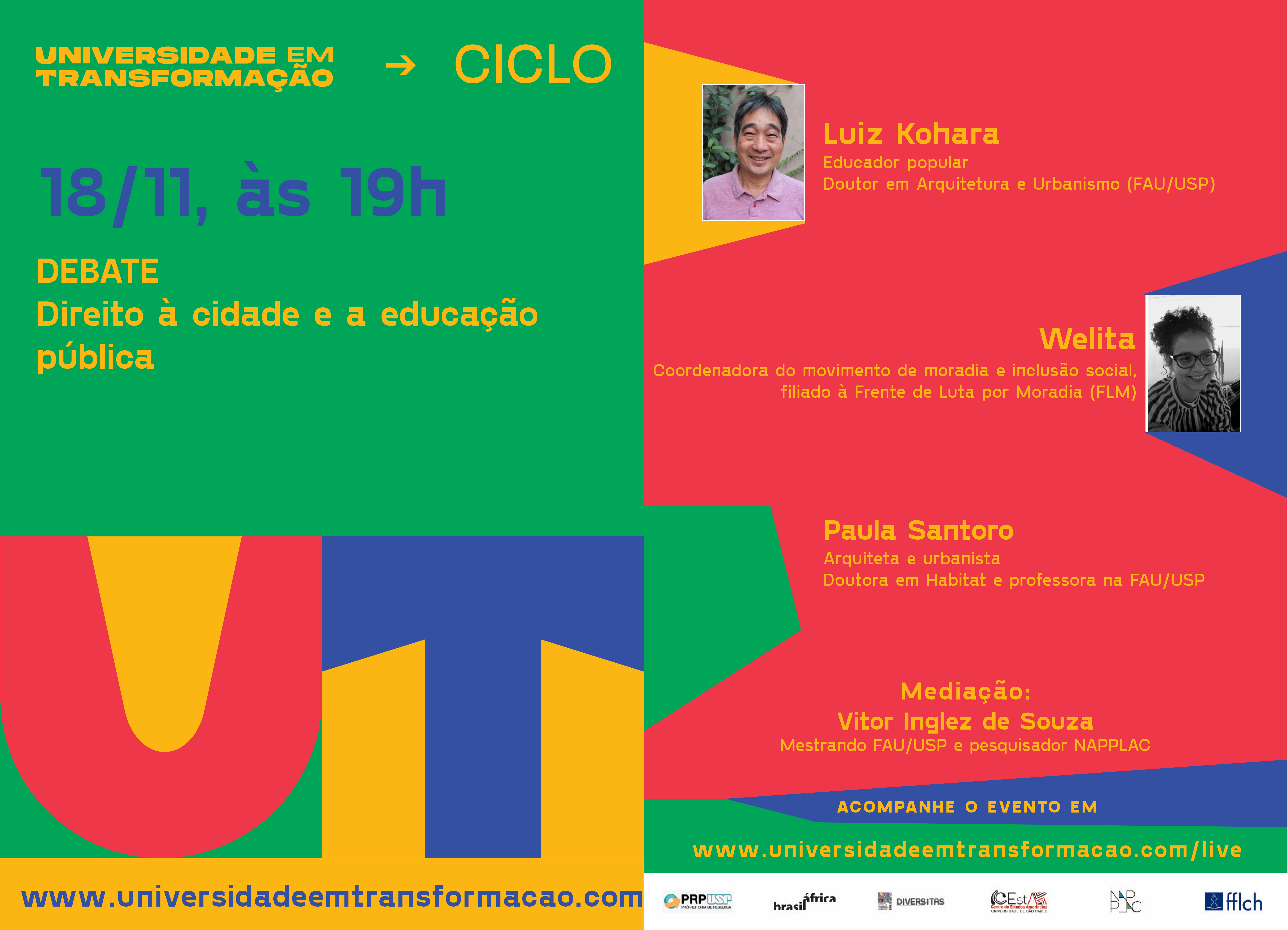History Events DA
Aspects of the process of creating the teaching material "Anthropology of the city: ways of doing", produced by GEAC members from an update course of the same name, taught in 2018, will be discussed. Bianca Chizzolini, Gabriela Leal and Maurício Alcântara will comment on language and format challenges for the preparation of materials aimed at supporting teaching activities, and discuss the challenges of thinking about field activity and scientific dissemination in times of pandemic.
Links to the broadcast (on the GEAC YouTube channel) and to the teaching material are available here.
Webinars of the Laboratory of the Center for Urban Anthropology (LabNAU/USP).
Debate - City tactics: ethnographic perspectives on urban daily life.
Speakers:
• Profa. Dr. Viviane Vedana (UFSC);
• Prof. Dr. Igor Monteiro Silva (Unilab).
Debaters:
• Mariana Machini (PhD student in Social Anthropology - PPGAS/USP);
• Sâmia Pereira (Master's student in Social Anthropology - PPGAS/USP).
?Date: February 24, 2020, Wednesday.
?Time: 4 p.m.
?Location: LabNAU's Youtube channel.
?Address: https://www.youtube.com/channel/UCOW7GQI1hv26z6q3TIkZzwQ
USP's Department of Anthropology invites you to the seminar presented by Prof. Dr. Renato Sztutman.
The seminar will be held by stream.
The access link will be sent to guests at 9:45 am.
The Center for Amerindian Studies (CEstA-USP) and the Research and Training Center (CPF) of SESC-SP invite everyone to the online event Crossing knowledge practices: (r) exist in a world under covid-19, the be held between November 30 and December 4, 2020, in the morning (10 am to 12 pm).
USP's Department of Anthropology invites to the DA Seminar "Foraging materialities. Rethinking the notion of anthropic forest" (*)
Profa. Dra. Marta Amoroso
Date: November 27, 2020. Friday at 10 am
The seminar will be held by videoconference.
The access link will be sent to guests at 9:45 am.
(*) Supporting texts attached.
I suggest to colleagues the presentation text of the collection: Vegetable voices. Diversity, Resistance and Forest Stories (Cabral, J .; Amoroso, M; Lima, AGM de; Shiratori, K. & Marras, S. 2020) and my article "The discovery of the manhafã: home and displacement of the Mura in the forest" (Amoroso 2020), both extracted from the book in press, to be released in December 2020 by Editora Ubu / IRD, São Paulo.
Napedra has been a pioneer in performance studies in Brazilian anthropology. It organized events that mark the field of performance anthropology, such as the International Anthropology and Performance Meeting - EIAP (2011), the 1st National Anthropology and Performance Meeting - ENAP (2010), and the Meetings with Richard Schechner (2013). He proposed the first research forums and working groups in performance studies of the Brazilian Association of Anthropology (ABANNE 2003; RBA 2004, 2006, 2012) and the National Association of Graduate Studies and Research in Social Sciences (ANPOCS 2005, 2006, 2007 ). He organized research forums and work groups at the First Latin American Anthropology Congress (ALA 2005) and Mercosur Anthropology Meetings (RAM 2005, 2009). In 2009, he held the Colloquium of Napedra: Sounds, Noises and Poetics of Performance. From 2008 to 2013, she developed the thematic project Anthropology of Performance: Drama, Aesthetics and Ritual (06 / 53006-2), a period in which Regina Pólo Müller's participation stands out, as a principal researcher. The project resulted in 22 books, 81 articles, 82 book chapters, and 102 international presentations.
In recent years, more and more young people from the periphery have accessed higher education, and particularly public universities. Public education is seen as another frontier crossed by young people from the periphery, who take peripheral culture into universities. The route derives from a historic trajectory of mobilization and struggles in the urban peripheries for the realization of rights and confronting socio-spatial segregation, including the right to education, activist and culture, both imbricated to the right to the city.
This debate aims to broaden the debate on the possible associations and contradictions between the political forms of culture and access to public education from the periphery. This connection is permeated by contradictions and is not always balanced. If, on the one hand, there are the creation of popular courses, the dissemination of knowledge through networks of peripheral culture and the expansion of research on urban space from the peripheral context, on the other hand there is the difficulty of staying and prejudice rooted in sectors that are still elitist at the university. .
Are Brazilian universities open to the production of knowledge linked to the different types of knowledge that make up Brazilian sociocultural diversity and that of Native Peoples? When we talk about interculturality, do we deal with dialogues between knowledge, horizontal and decolonial interactions? Did academic productions overcome the ethnocidal, epsitemicidal and / or expropriation of knowledge positions? These are some of the concerns that we will try to ponder in this dialogue.
Casé Angatu - Santa Cruz State University and Graduate Program in Teaching and Ethnic Racial Relations at the Federal University of Southern Bahia (PPGER-UFSB), Monguetá mbaecuaba-eté: Indigenous Indigenous Knowledge & Academic Knowledge - Relevant Intercultural Dialogues? Casé Angatú
Joziléia Daniza Jagso Kaingang - Federal University of Santa Catarina
The ideals of more equitable and fair cities have historically mobilized social movements and academia to defend the guarantee of social rights for all, without any form of gender, ethnic, sexual and religious discrimination. These ideals centralize the guidelines for the right to the city in the face of structural Brazilian socio-spatial inequality. The pandemic of the new corona virus “covid 19” has broadly exposed Brazilian socio-spatial inequalities and widened them among the most disadvantaged segments. The majority of those affected by the covid 19 are informal workers, unemployed, homeless, living in precarious areas, both in the peripheries and in the center, and above all women and blacks historically inferior in Brazilian society.
In addition to this particularly adverse context in which we find ourselves - with the intensification of the widespread privatization agenda, extinction of rights and the upsurge in state violence that naturally accompanies them -, it has been operating through increasingly complex mechanisms, concealing reality and generalization of misinformation and confusion especially directed at the people from whom resistance should come.
The Cycle of Debates and Lectures “University in transformation: challenges and potential - Education, Research and Human Rights in the 21st century in an interdisciplinary perspective” begins on 10/15 (Thursday) at 4:30 pm.For about 2 months (from 10/15 to 12/18), more than 100 speakers will interact, in videoconferences broadcast on Youtube, with a wide group of people on social networks (Youtube, Instagram, Facebook and Twitter) and on the website of the Cycle (www.


